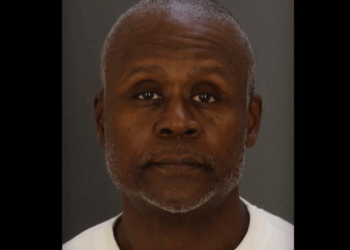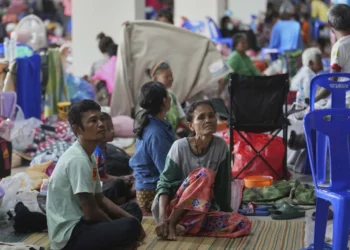Back in 2022, when he won an “unprecedented” third term as General Secretary of the Chinese Communist Party, Xi Jinping was thought to be at the apex of his power, particularly when up against a failing Joe Biden. But age catches up to all of us, and the first signs of a discussion of a post-Xi leadership have been swirling in media outlets attuned to the situation in Beijing.
As we all know, China is a vast nation with a large population to feed. Since President Richard Nixon opened trade with China in the 1970s, that nation has steadily become an economic power to rival ours, as companies worldwide have taken advantage of the cheaper labor. That growth was essential to a nation with a population of well over a billion, despite a long-standing “one child” policy that finally came to an end in the last decade.
Upon taking office, Xi launched a major program — the Belt and Road Initiative — to expand China’s influence and establish it as a world power. This initiative has attracted over 150 countries with the promise of Chinese assistance, much like a scorpion requires a frog to cross a river.
More recently, Xi had solidified his power, but only to a point. As veteran China observer Dr. Willy Wo-Lap Lam, writing for The Jamestown Foundation, recently noted:
Xi’s power increasingly appears to have peaked, however, with the high point coming at the Party’s 20th National Congress at the end of 2022. This was the moment at which “Xi Jinping thought on socialism with Chinese characteristics for the new era” was enshrined as state dogma and Party members vowed to “safeguard the ‘core’ of the Party leadership.”
Dr. Lam, though, seems to be on the bullish side as far as a weakening of Xi’s position goes. Conversely, writers at the China Media Project counted headlines to conclude:
At [the] risk of throwing a bucket of cold water on the flames of speculation, our analysis of official media coverage reveals no such decline in Xi’s prominence. In order to test the top leader’s presence in the most central authoritative official media on this question, we studied Xi’s headline appearances on the front page of the Chinese Communist Party’s official People’s Daily for both the second quarter of 2024 and the second quarter of 2025.
They found that Xi had maintained his prominent position in the newspaper’s headlines, with other perceived rivals remaining far behind.
Xi is also continuing what he’s termed an “anti-corruption” purge of military leadership, most recently with “senior military official” Miao Hua being removed from China’s Central Military Commission for “serious violations of discipline.”
Yet there are ominous signs as well, particularly Xi’s “scheduling conflict” that precluded his attendance at the BRICS conference this week in Brazil. He also disappeared from view in late May and early June, reappearing to host the president of Belarus, Alexander Lukashenko. But that visit was unusual, wrote former senior U.S. diplomat Gregory W. Slayton in the New York Post:
Xi reappeared to host Belarus dictator/Russian puppet Alexander Lukashenko in early June. Xi looked tired, uninterested — even defeated. The meeting location was a low-key family-style area of the CCP leaders’ compound (Zhongnanhai) in Beijing that had never before hosted a state visit. Stripped of the pomp and circumstance that used to accompany every Xi gathering, the entire entourage was a mere handful. None of Xi’s translators or senior aides were present.
Slayton is perhaps the most optimistic about a regime change, believing that “Xi is in poor health and likely to retire at the CCP Plenary Session this August or take a purely ceremonial position.” In his analysis, he adds:
Although not yet certain, it appears that Zhang Youxia and CCP elders have chosen Wang Yang, whom Deng Xiaoping lifted out of obscurity and who served as a successful technocrat until his forced retirement in 2023, to be the next CCP chairman. He is known as a soft-spoken reformer who supports more free-market policies, more decentralized decision making, and a much less confrontational foreign policy.
A Chinese leader more willing to strike deals with other nations could be music to the ears of the Trump administration, which has increased pressure on China with revised tariffs and an expanding military presence.
Regardless of who may succeed Xi, that person will inherit the leadership of a nation that has placed itself in an economic bind thanks to its slowly rising living standards and dependence on exports. Once again quoting Dr. Lam:
Results of policies that have earmarked tens of billions of dollars to develop high-tech sectors such as artificial intelligence, quantum computing, electric vehicles (EVs), and green technologies have been disappointing. For example, in mid-2024, Xi personally approved a “Big Fund 3” to invest $45 billion to subsidize chosen technologies, in particular the chip sector. … Despite heavy propaganda, however, this revival of Soviet-style industrial policy has failed to achieve desired breakthroughs. Instead, corruption has been rampant.
They say a bear is at its most dangerous when it is cornered. It’s safe to assume the same goes for dragons, too.
















